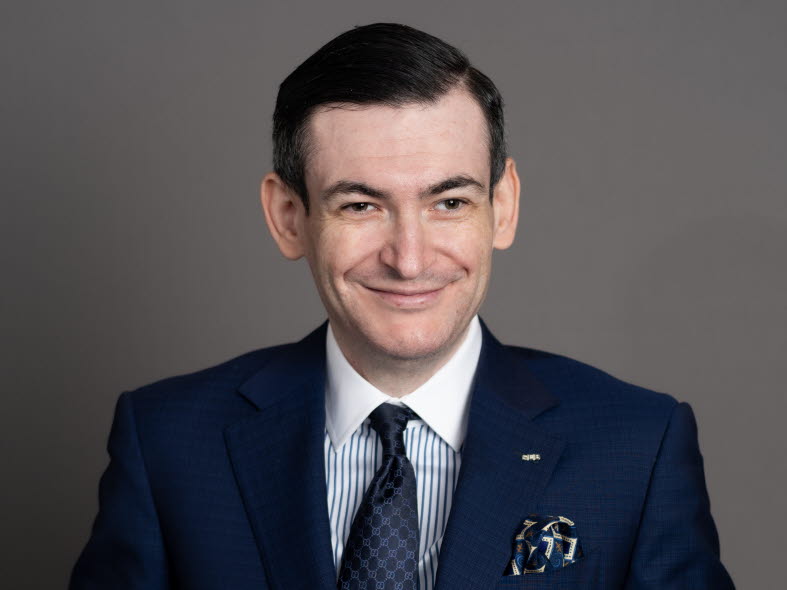Take the step when the opportunity comes

"I have to dare to do this," said Kemal Karahasanovic before applying for a Client Associate position at SEB's UK office in London. He shares his career journey and gives tips and thoughts to those who want to make a career at SEB.
Kemal Karahasanovic works as Client Associate at SEB UK, where he and a Client Executive are responsible for a portfolio of a large number of British and multinational large companies, as well as responsibility for customers’ relationship, profitability and risk linked to the portfolio.
Kemal describes how every day is different from the other. The tasks are so varied that he often functions as a project manager in various areas both internally and externally.
”SEB UK has been a home market since 2016, unlike the operations in Sweden which have existed for over 160 years. Because we are fewer people working in the UK, it is easier to get involved in various projects and issues whereas in Sweden there would have been more people sharing tasks. It's incredibly educational and fun. It is really necessary to be on your toes and flexible because the market demands that we are competitive and stand out.”
Kemal emphasizes the importance of good leaders and good cooperation, something he thinks the team at SEB UK has. He describes that the focus is still on business and the customers. Delivering on their goals, such as world-class service, is not just a utopia but a prerequisite for the customer to want to work with them, says Kemal.
You have worked at SEB for 10 years, tell us about your career journey.
“It started with me participating in the Swedish championships in economics during my studies, where I met some representatives from SEB because they were the main partner. It seemed like an interesting company, and therefore I applied for an internship and got to work in Wealth Management. Then I got a summer job, and after my graduation I got a full-time job. In 2015, I switched to the corporate side of the bank, where I’ve mainly worked as an advisor, which over the years has developed into larger and more complex corporate groups.
How did you end up in the UK?
“I saw the opportunity to start working in London, and I first applied for the 6 months temporary position. Then I got the question if I didn’t want to be there longer, which I of course would consider and so I applied for the permanent position. It was a long process, but I eventually got the role.”
Kemal describes how he thought to himself “I have to dare to do this” and took the chance. He is happy and grateful, as well as humble in the face of the assignment and position as Client Associate.
“All the things I have worked with previously, everything from carrying printer paper and helping customers get into bank compartments, to today being able to participate in transactions in the multi-billion class, have made it possible for me where I am today. Above all, it is the people I have met in the meantime who have helped me, and the opportunity to learn new things.
Do you have any tips for those who want to make a career within SEB, and also internationally?
“Many times, people think "career - what is that?". Making a career can be anything from learning more about your role, specializing and developing, to having new roles in new places. You can develop in many different ways. I think the most important thing to be able to make a career and develop is to be curious, have fun, show interest and above all take the chances when they come. Think about what it is you want to do or try, and work hard for it.”
Kemal wants to emphasize that you always have people around you who care for you and who support you if things go wrong.
“SEB always take care of their employees. There are always ways to get a job if the challenge you sought did not turn out to be what you had hoped for. But I always think you should take the chance when it comes. The risk is that you will regret it if you say no.
He emphasizes the importance of not fussing over things, that simplicity, openness, and honesty lead to many possibilities. Kemal concludes with his best tip:
“Take the step when the opportunity comes.”
